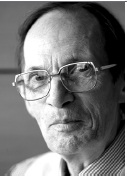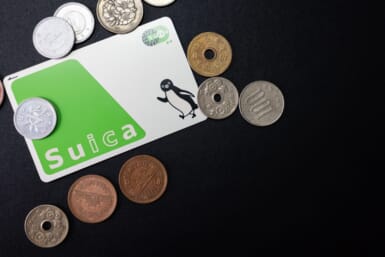I was visiting the office of a fund manager friend in Tokyo the other day. He let me glance over the shoulder of one of his people. Her performance — for this was a lady — came to 54 percent in the last year, focused mainly in companies I had never heard of. Quoted companies, mind you, but total mysteries to me, even as someone who specialized in small caps and wrote two book-length reports on little companies.
So what do I conclude from this, you may wonder? That it would have been lovely to be invested in that Japanese small cap fund a year ago, and to be sharing a 54 percent increase in value over 12 months? Well, yes.
Listen, life is mostly hard knocks. A return such as that comes to a fund manager only once in a decade, if that. And if you miss it, lo and behold, you under-perform the market over five or six years and long before then the muttering starts among investors: “Do we need this useless person who can’t beat the index?,” they ask. Oh yes, oh yes.
I know whereof I speak. For more than a decade I served on the board of a fund invested here. I was an outside director and never knew what the manager was investing in, until after the event. But some of the lingua franca of the trade worked its way into my skull.
And what I learned, to put it simply, was that a good manager gets attention. My one was OK. His name was Paul Kirkby and, before I knew it, he was managing not $200 million in assets as at the outset, but $2 billion. I used to marvel at that. I still do.
Every year we had a board meeting and a conference — the two went magically together — and year-in, year-out I became aware that another few hundred million U.S. dollars had made their appearance in our fund.
All of this legerdemain, I might add, was performed by that one man, Paul, at his one desk in St. James, London SW1, far from Tokyo, for most of the dozen or more years he was in charge of GAM Japan — “GAM” standing for Global Asset Management, a noted institution in its time (now part of UBS, while still having a separate identity of its own).
The purpose of this column, you might understand, is to draw attention to such masters of the universe. Paul proved himself one. But he isn’t available. He left GAM not long after the death of our mutual friend, founder Gilbert de Botton, and set up his own shop in London.
It’s no use telling you where to find him because he’s “closed” his funds, meaning he accepts no more money. When you pass a certain critical mass, I should mention, the game changes. Once you are handling billions, instead of hundreds of millions, you are not a cottage industry any more; you are a Fidelity.
That doesn’t suit everyone’s peace of mind.
So who do I like? Herewith, a tip. Do yourself a favor and join the Foreign Correspondents’ Club of Japan. That is where the rumor mills can be found, as regards money.
For example — and making my point — that was where I had the chance to hear a chap called Atsuto Sawakami speak the other day. He was our guest at luncheon and, as I sat there at table, I noted heavy hitters to the right of me (Shinsei Bank’s chief investment officer Mark Nicholas Cutis) and likewise to the left of me (State Street’s Vice President of Marketing David A. Collins).
Up on the platform to introduce Mr. Sawakami — a deft chap of 57 who spent much of his life working with Pictet, a Swiss outfit — was Georges Baumgartner, the treasurer of the FCCJ.
In introducing our speaker that day, Georges alluded to the fact that a chunk of our FCCJ employees’ retirement money is being managed by Sawakami-san. To me, that says it all.
A decade ago, I was the treasurer myself, and the thing I wanted most was to get our obligations 100 percent covered. That is now policy, and management of the funds is officially important.
Why did we choose Sawakami-san, you may ask? I am going to make this short. He is a man with a reputation for honesty and for putting the clients’ interest first. Most or many asset managers are not like that; they think only of themselves and how much they can gouge the clients for.
This person — he showed a 4.6 percent return on funds he managed over the years since he started up in 1999 — is OK. Here are the numbers on his meishi— tel. 5226-7791 and fax 5226-7966. That’s for Sawakami Asset Management in Tokyo.









_KRAACH-クリスタルバスソルト-385x257.jpg)